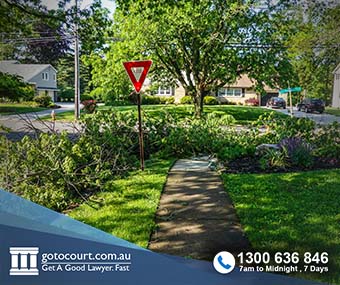Alternative Dispute Resolution in the ACT
Alternative dispute resolution (ADR) processes are ways of resolving disputes outside of courtrooms. Australia has a nation-wide ADR system in its federal courts. ADR can help people to resolve a dispute without going to court. This is usually faster and cheaper than litigation and does not have to involve lawyers, although many lawyers do have training in ADR. It is also a good option because it can help you with a problem that might not be something you could take to court. ADR is also confidential, and the parties are in control of the process.
When is alternative dispute resolution used in the ACT?
ADR can be used whenever two or more parties are in a dispute. There are hundreds of different situations where ADR can be helpful, including:
- a dispute with your neighbour about trees, fences or pipes;
- an argument with your local council about a planned road or development;
- a debt somebody owes you or your business; or
- a claim for compensation for damage to your motor vehicle or house that was not your fault.
There are a number of different types of ADR, which are suitable for use in different situations. These include negotiation, mediation and arbitration.
Negotiation
Negotiation is the ADR process that is often the first option for parties who want to resolve a dispute informally. It involves a party talking to another party about the situation and seeing if they can both agree to a solution they can live with.
Negotiating or compromising works best when both parties try to see each other’s point of view, rather than just ‘sticking to their guns’ and trying to win. If you come up with a workable solution, sometimes it helps to write it down and sign it. Although this might not be a legal contract, it does show you are both committed to fixing the problem.
Mediation
If parties are not able to resolve the situation through negotiation, it may be appropriate to seek the assistance of a mediator or facilitator. Usually this will be a trained mediator but if the dispute involves a government agency then the Commonwealth Ombudsman might also be able to help.
Mediation occurs when parties try to work out the solution with the assistance of an impartial third party. Parties can involve a support person or a lawyer. Mediators usually will not interrupt or make decisions. Instead, they will try to encourage parties to develop their own solutions and to see each other’s points of view.
Mediation can also be conducted indirectly. This is known as ‘shuttle’ mediation. Here the mediator talks with one party first and then the other. They will then try to resolve things in a back-and-forth manner. This kind of mediation might be suitable where parties do not feel comfortable communicating directly.
Mediators will not give legal advice.
You can find a list of accredited mediators in the ACT here.
Arbitration or determinative ADR
Another type of alternative dispute resolution is arbitration, evaluative or determinative ADR. This is an ADR process that consists of someone listening to the stories of both parties before making a decision that will bind both of them.
A lawyer might do a private judging, where they look separately at each side’s case and advise on who would be likely to win if the matter went to court. Arbitration might also involve an expert in the area who has particular knowledge of the situation, such as an engineer or an accountant.
Arbitration can assist where parties want a decision that will protect their rights. Arbitration decisions are also usually confidential. However, arbitration can be fairly inflexible and time-consuming in comparison to other methods of ADR.
What are the processes?
The processes involved in different forms of ADR are outlined below.
Negotiations
A negotiation must involve a willingness to see the other party’s point of view. Some tips for negotiating with other parties are as follows:
- Set some ground rules such as no shouting or swearing and what is said stays confidential. This should give you both the confidence to talk about the problem;
- Be willing to listen to the other person and hear what they have to say, even if you do not agree with it. This might involve listening for longer than you are usually comfortable with;
- Ask questions about the other person’s claims and try to find some things you agree on;
- Repeat parts of their argument back to make sure you understand them, especially if English is not their first language;
- Ask them what their perfect solution is. You may be surprised how often this is something workable for both of you;
- Do not ignore the person when they talk or make disrespectful comments about them or their argument;
- Avoid interrupting, shouting over or blaming the other person; and
- Do not make threats or demands.
In order to successfully negotiate a resolution, you should be prepared to give up some things you are not really concerned about. You can usually use this in negotiation by explaining that, for example, you will do something if the other person does something you want.
If you reach a solution here it is best to write it down and get both of you to sign it. This can be a reminder to both of you of what you agreed to do. Also remember that you can always change this later on as long as you talk about it with the other person first.
Mediation
If negotiation does not work, you might need to seek the assistance of a mediator. Usually, the mediator will want to meet with you somewhere neutral. This could be at the mediator’s office, or in a meeting room or café.
If the mediator is using shuttle mediation, they may come to your house or conduct the session over the phone.
Mediation usually follows a similar structure to negotiation:
- The mediator will introduce everyone and set some rules about appropriate communication;
- The mediator will pick someone to go first and let them talk about their issue. The mediator will step in if somebody tries to interrupt;
- Then they will pick someone else, and they talk, until everybody has had a chance. The mediator might ask questions that help everybody understand what the problem is, or what a good solution might be;
- Usually a mediator will tell the parties when a solution is not reasonable or realistic; and
- They might refer you to some other services that might be able to help.
Mediators will not make a decision for you. That is for you and the other party to figure out.
Arbitration
If mediation is inappropriate or has not succeeded in resolving the situation, arbitration may be the last step before resorting to court. Arbitration will work the same as a mediation but will be held at a court or tribunal building.
Parties will need more evidence at an arbitration than during other ADR processes. The arbitrator will hear the evidence before making a decision. This decision will then be binding on both parties.
If arbitration is not successful, parties may want to get legal advice and see if they should take the matter to court.
Legislation
Under the ACT Civil and Administrative Tribunal Act 2008 and the Civil Law (Wrongs) Act 2002, ACT courts and tribunals can order parties to attempt to resolve a dispute through any of the above ADR processes.
With federal court matters (in the Federal Circuit and Family Court of Australia and the Federal Court of Australia) parties must inform the court of what ADR steps they have taken when they file the initiating application. This is called a genuine steps statement under the Civil Dispute Resolution Act 2011. The court may decline to hear the matter if ARD has not been attempted.
If you require legal advice or representation in any legal matter, please contact Go To Court Lawyers.








